Hough, Budapest Festival Orchestra, Fischer, Royal Festival Hall
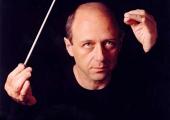

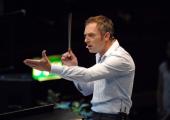
Next Friday, my amazing period-instrument orchestra, Army of Generals, begins a new residency at St George’s Bristol. The aim of this unconventional and high-octane series of concerts - which will be performed by what I refer to as my crack squad of period instrumentalists - is to raise the bar for people’s engagement with music and to bring some musical protein to a city which I think is so desperately in need of it.
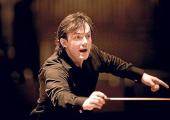
The heroics came fast and fervently with Andris Nelsons and the Philharmonia Orchestra emerging from suffocating pianissimi to rip out the exultant fanfares of Beethoven’s Leonora No 3 Overture as if already limbering up to take on Strauss’s critics in Ein Heldenleben. That he saw them off so decisively didn’t, on his present form, come as much of a surprise. Nelsons doesn’t need anyone to fight his battles for him – not even the egotistical Strauss.
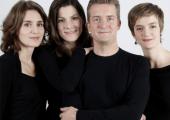
Their oaky, cultured and selectively scary-wild playing seemed to cast long autumn shadows over a sparse but intent audience. This is the kind of rare programme top violinist Christian Tetzlaff, his cellist sister Tanja and friends like to work on when they get time to play together. There was Haydn for starters, but not the kind of jolly curtainraiser we're usually given; Dvořák, but not the blithe American; and Sibelius's Voces Intimae, the only great quartet of the 20th century yet to be widely acclaimed as such, with strange, authentic ideas in every bar and a slow movement to match any in Beethoven's late masterpieces.
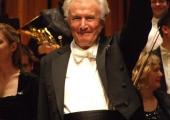
Communists had taken over the Acropolis, Britain faced a hung parliament and in the 20 minutes it took me to get down to the Barbican by bus the US stock market had fallen more sharply than at any time since 1987. In the face of global and political madness, it was nice to have a concert awaiting that seemed to offer a sense of cosy familiarity and unfashionability and monarchical approval. Sir Colin Davis and Dame Mitsuko Uchida were our guides, an unfussy programme our fate.

At the Vatican, recently, the Pope attended a concert in his honour in the Sala Clementina. This is the great double-height room which stands at the entrance to the private papal apartments; it is where Pope John Paul II’s body lay in state almost exactly five years ago. I was one of about 150 guests, at least a third of whom were cardinals, bishops and other senior clerical figures. As we arrived there was the most ornate and intricate gavotte of seat-taking, lasting a good 40 minutes.
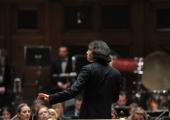
Eliot's "time future contained in time past" has been conductor Vladimir Jurowski's unofficial motto throughout a festival which has had to take itself very seriously, and managed miraculously to carry a surprisingly large, loyal audience of all ages and persuasions along with it. Such stringent conditions could hardly be otherwise given the focal point of an uncompromising genius.
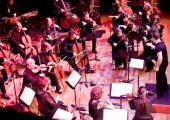
Go on, admit it. You’ve done it too. Someone is talking in your vicinity and you’ve turned round to give them evils. It’s a manoeuvre I’ve been perfecting for years. The classic rebuke is in the speedy twist of the neck, a withering glance in the perpetrator’s general direction (but not, crucially, into their eyeballs: too confrontational) followed by the slow, affronted turn back to face the front. For one night only, the gesture says, you are singlehandedly ruining my life. I didn't pay more than I can afford to listen to you whisper through Beethoven/Shakespeare/”The Great Gig in the Sky” (yes, they can strike anywhere, any time).